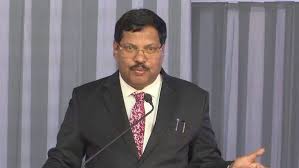‘We are also trying to pursue’: Supreme Court on govt delay in judicial appointments

The Supreme Court of India has expressed concern over the government’s delay in clearing judicial appointments. During a recent hearing, Chief Justice of India (CJI) B.R. Gavai said, “We are also trying to pursue on the administrative side. Quite a few names have been cleared.” His statement highlights the judiciary’s frustration with the prolonged standoff between the executive and the Collegium over appointments to the High Courts and Supreme Court.
India’s judicial system faces a mounting backlog of cases. This problem worsens due to over 370 vacant posts in High Courts. Many names recommended by the Collegium remain pending for years. Such delays affect the pace of justice and raise questions about judicial independence.
The Collegium System
The Collegium system came into existence through several landmark Supreme Court rulings. It gives the judiciary primary authority over the appointment of judges to higher courts. The Collegium consists of the Chief Justice of India and four senior-most Supreme Court judges. Together, they recommend names for elevation or transfer of judges.
The central government reviews these recommendations. It can ask the Collegium to reconsider, but once the Collegium repeats a name, the government must act. However, the government often delays processing these recommendations, creating friction with the judiciary.
Supreme Court’s Observations
In July 2025, the Supreme Court agreed to hear petitions that challenge these delays. Lawyers argued that the government’s inaction is harming the judiciary’s independence. Some recommendations have been pending since 2019. Several candidates have lost seniority or withdrawn consent due to the long wait.
The Supreme Court has stated that the Collegium is not a mere advisory body. It plays a critical role in judicial appointments. Delays in clearing its decisions undermine the integrity of the entire system. The CJI’s recent remark suggests that the Court is actively working with the government to move the process forward.
Effects of Delays
The consequences of delayed appointments are severe. Many High Courts operate with fewer judges than sanctioned, slowing case hearings. India currently faces over 5 crore pending cases, and High Courts handle a significant portion of them.
Judicial appointments ensure that the justice system runs efficiently. When vacancies remain unfilled, cases get adjourned for months or years. Litigants suffer, and public trust in the judiciary declines. Legal experts argue that delays demoralize deserving candidates and harm the legal community’s confidence.
Government’s Position
The government claims that it needs more time for thorough background checks. It cites “sensitive inputs” from intelligence agencies as reasons for the delay. However, the Supreme Court has warned that such explanations cannot justify indefinite inaction.
The Court has reminded the government that it must act promptly once the Collegium reiterates a name. Analysts believe this standoff reflects deeper tensions over the role of the Collegium. The government wants more transparency in appointments, while the judiciary fears political interference.
The Call for Reform
The dispute has reignited debates about judicial reforms. Critics argue that the Collegium lacks transparency, even if it protects judicial independence. Some experts have suggested creating a new mechanism like a Judicial Appointments Commission.
However, the 2014 National Judicial Appointments Commission (NJAC) Act was struck down by the Supreme Court in 2015. The Court ruled that the NJAC violated the Constitution’s basic structure by threatening judicial independence.
Possible Solutions
The Supreme Court’s recent stand shows that it will not allow the stalemate to continue. Observers believe the Court may set deadlines for the government to clear names. This step could improve accountability and speed up the process.
A balanced approach is crucial. The government’s concerns about transparency and security checks matter. Yet, these concerns cannot delay justice indefinitely. At the same time, the judiciary should make its Collegium system more transparent to gain public trust.
Why Timely Appointments Matter
Judicial independence is a pillar of democracy. The credibility of the courts depends on their ability to deliver justice quickly and fairly. Vacancies and delays weaken the entire system, leaving citizens waiting for legal relief.
The CJI’s statement shows that the Supreme Court is serious about addressing this issue. A prompt resolution could help fill vacant posts and ease the backlog.
Conclusion
The ongoing delays in judicial appointments highlight the friction between the executive and the judiciary. Chief Justice Gavai’s remark, “We are also trying to pursue,” reflects the Court’s determination to break this deadlock. Both the government and the judiciary must collaborate to ensure timely appointments.
The next few weeks will be important as the Supreme Court examines petitions on this matter. Whether this leads to a faster process or sparks further debate on the Collegium, one thing is certain—judicial efficiency cannot wait. Timely appointments are key to upholding the rule of law and restoring public trust.






